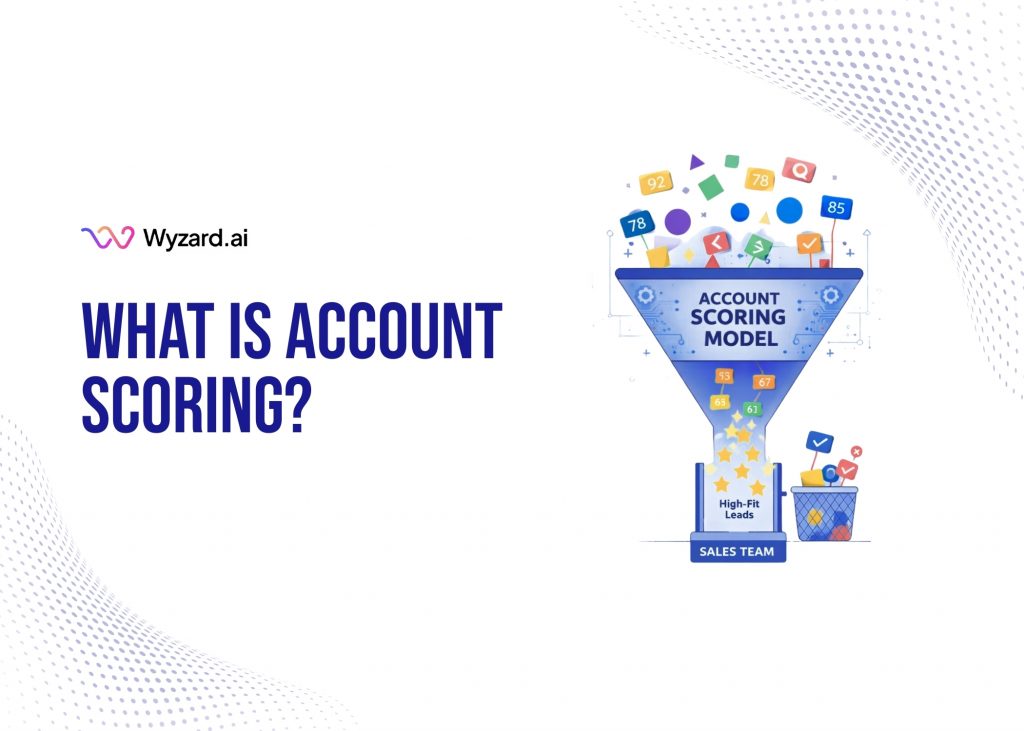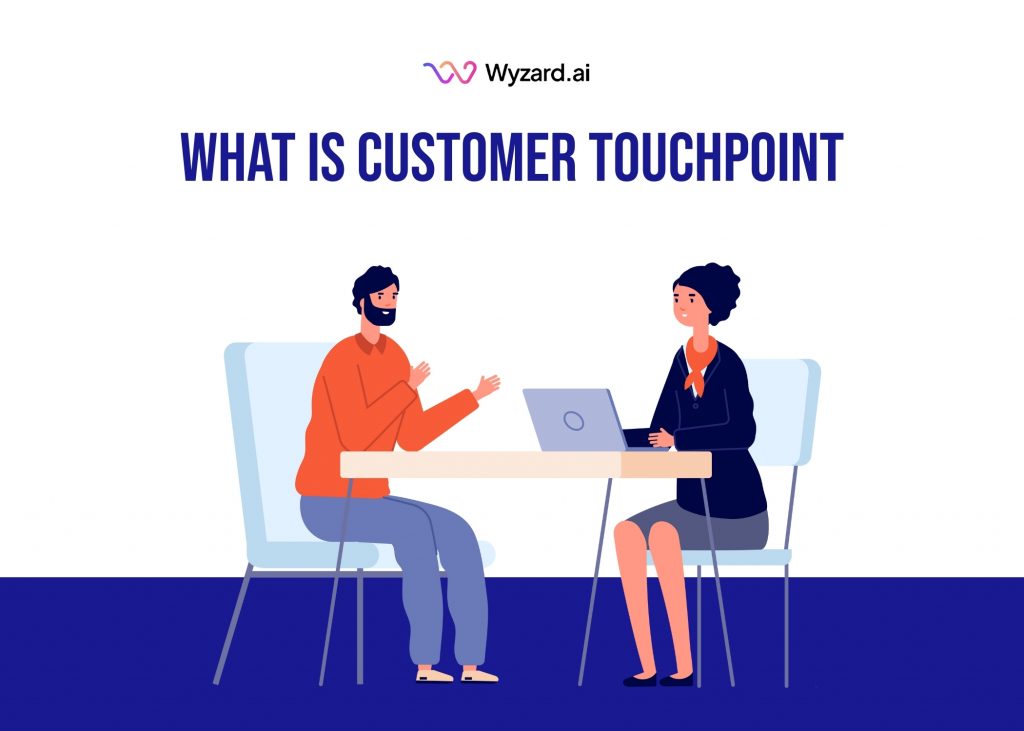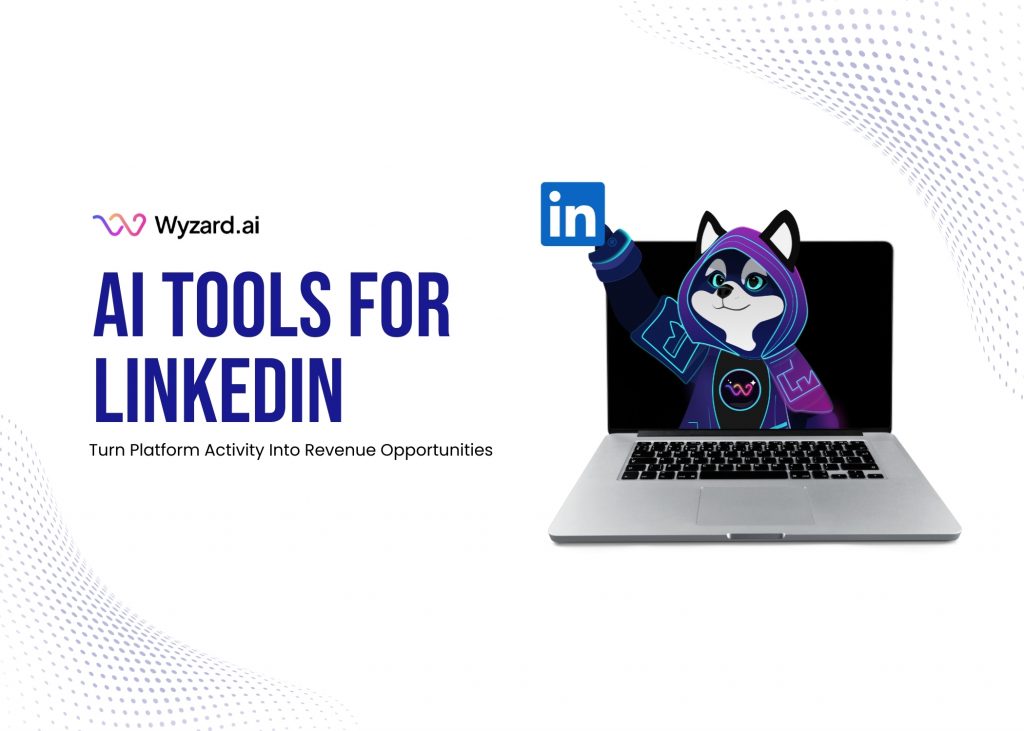What Is Account Scoring? Account scoring assigns numerical values to companies in your pipeline based on how well they ...
Lead Nurturing Strategy in 2026: How Agentic AI Transforms Engagement
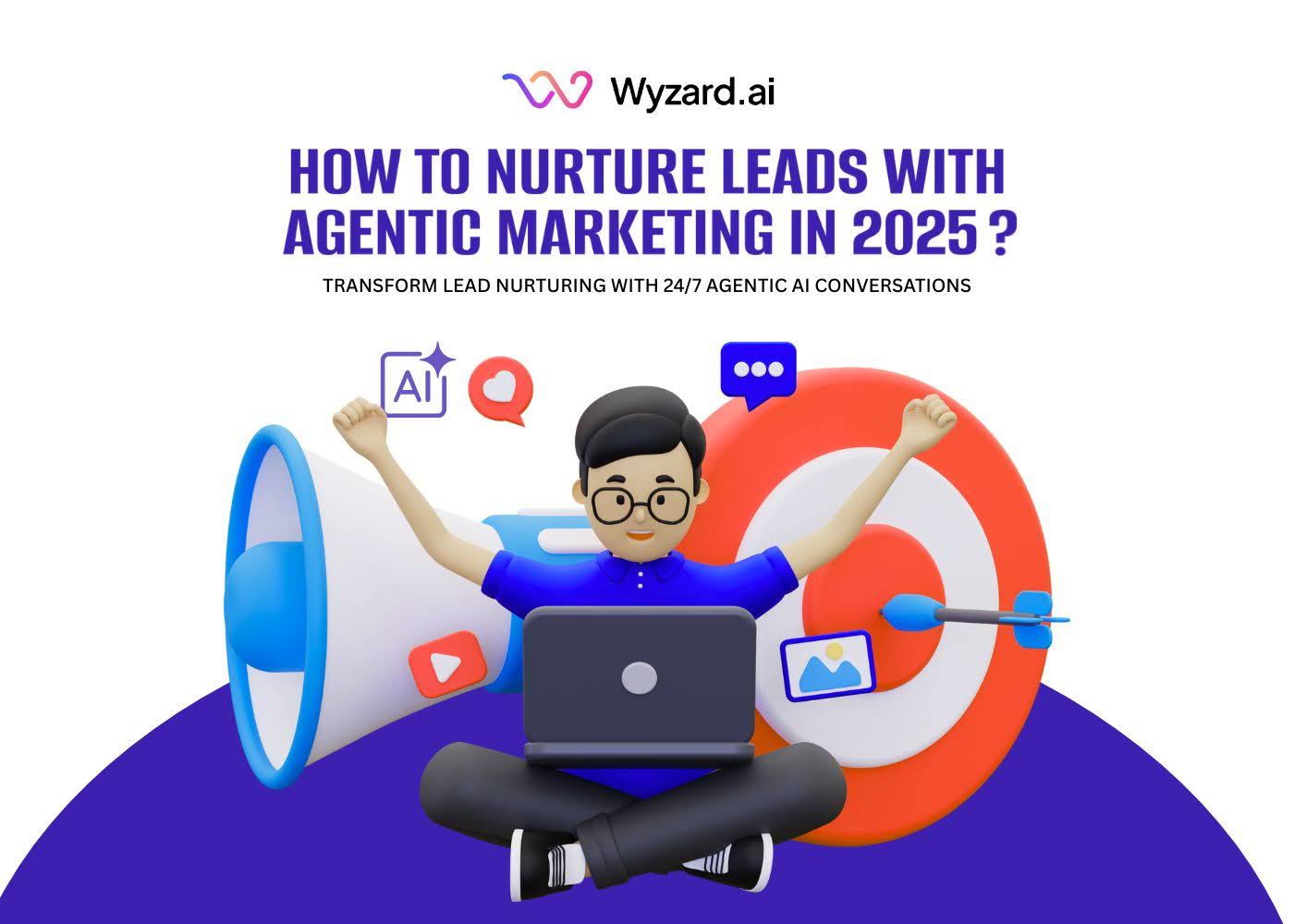

Subscribe Now
In today’s fast-paced environment, marketing teams face a familiar challenge: generating quality traffic while watching high-intent prospects slip through conversion gaps. Your website attracts visitors, your content drives engagement, yet the handoff from marketing qualified leads (MQLs) to sales qualified leads (SQLs) remains frustratingly manual and slow.
If you’re a SaaS marketer struggling with lead leakage, delayed response times, and the constant pressure to scale without expanding headcount, you’re not alone. The solution isn’t more tools or bigger teams, it’s smarter engagement through agentic AI that transforms how to nurture leads in real-time.
Modern agentic marketing represents a fundamental shift from reactive to proactive lead engagement. Unlike traditional chatbots or static forms, agentic AI operates as an intelligent copilot that understands context, reads intent, and responds with precision—24/7. This approach directly addresses the critical gap between visitor interest and meaningful sales conversations.
Agentic marketing becomes truly intelligent when memory-led nurture frameworks track every conversation across channels, ensuring no qualified lead slips away due to forgotten context.
The Role of AI in Marketing: Enhancing Customer Engagement
Artificial intelligence has evolved from a nice-to-have feature to an essential component of successful B2B marketing operations. For SaaS companies, AI-powered engagement tools now handle complex interactions that previously required human intervention, enabling marketing teams to focus on strategy while technology manages execution.
Understanding Agentic AI and Its Impact on Lead Generation
Agentic chat differs significantly from traditional chatbot technology. Where conventional bots follow predetermined scripts, agentic AI systems understand conversational context, interpret visitor behavior patterns, and adapt responses based on real-time intent signals. This technology enables immediate qualification of prospects without human involvement.
Agentic AI delivers this personalization at scale by analyzing visitor data points, including page views, time spent, content engagement, and referral sources, to craft relevant, timely responses that feel genuinely helpful rather than automated. More importantly, these systems capture intent data that would otherwise remain invisible, providing marketing teams with actionable insights about prospect behavior and preferences.
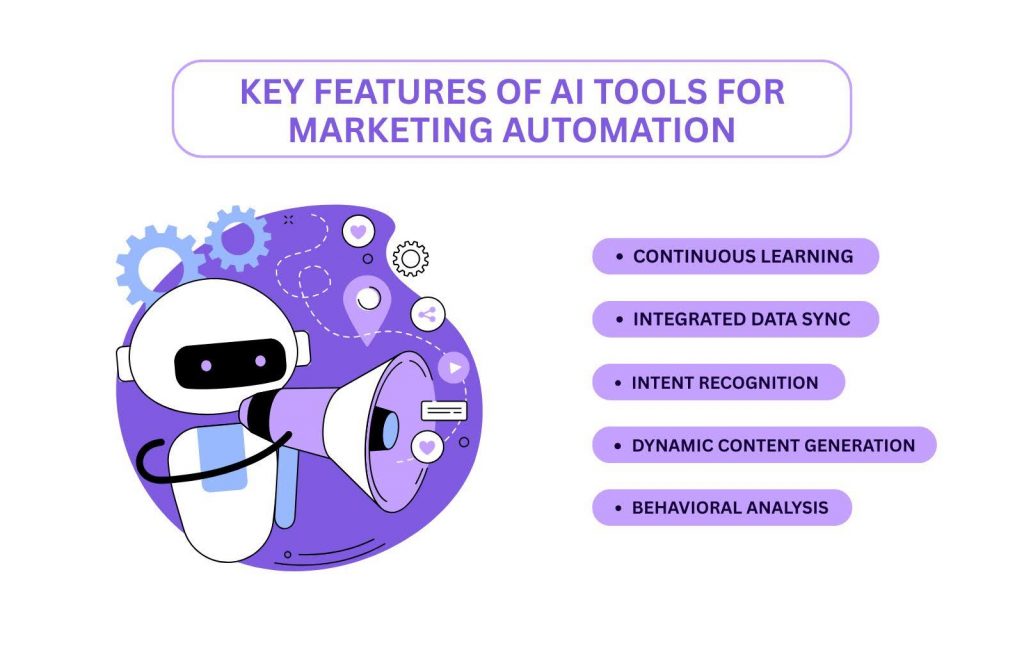
Key Features of AI Tools for Marketing Automation
Modern AI marketing tools incorporate several critical capabilities that distinguish them from legacy automation platforms:
- Intent Recognition: Advanced natural language processing identifies visitor intent from initial interactions, enabling appropriate conversation routing and response customization
- Behavioral Analysis: Real-time tracking of user actions across web properties provides context for personalized engagement
- Dynamic Content Generation: AI creates personalized responses and recommendations based on individual visitor profiles and interaction history
- Integrated Data Sync: Seamless connection with CRM systems ensures lead data flows automatically into existing sales processes
- Continuous Learning: Machine learning algorithms improve response accuracy and engagement effectiveness over time
Effective Lead Generation Strategies with Agentic AI
Understanding how to nurture B2B leads requires recognizing that modern buyers conduct extensive research before engaging with sales teams. According to Gartner research, B2B buyers spend only 17% of their purchase journey directly interacting with potential suppliers.
This behavior shift demands new nurturing approaches that provide value during self-directed research phases while capturing engagement signals for sales follow-up. Agentic AI excels in this environment by offering immediate assistance without pressure, building trust through helpful interactions rather than aggressive sales tactics.
The Importance of Personalization in Marketing Automation
Personalization in B2B marketing extends beyond inserting company names into email templates. Effective personalization requires understanding industry challenges, role-specific pain points, and individual buyer preferences. Agentic AI systems achieve this depth by analyzing multiple data sources and interaction patterns.
Consider a prospect researching lead management solutions who visits pricing pages, downloads comparison guides, and spends significant time reading implementation case studies. Traditional marketing automation might trigger a generic follow-up email. Agentic AI recognizes the research-heavy behavior pattern and offers specific implementation timelines, integration options, or relevant customer success stories.
This approach proves particularly effective for SaaS companies because software buyers expect detailed, technical information. Generic responses feel inadequate when prospects need specific answers about API capabilities, security certifications, or integration requirements.
Wyzard.ai’s approach to personalization demonstrates this principle through their agentic chat system, which maintains context across multiple visitor sessions while adapting conversation tone and content based on visitor behavior patterns and stated interests.
Utilizing Customer Data for Enhanced Engagement
Effective data utilization requires balancing personalization with privacy concerns. Modern prospects expect relevant experiences but resist overly intrusive data collection. Agentic AI systems address this balance by gathering insights through natural conversation flow rather than extensive form requirements.
Smart data utilization includes:
- Progressive Profiling: Collecting information gradually through multiple interactions rather than lengthy initial forms
- Behavioral Intent Mapping: Analyzing page visits, content downloads, and engagement patterns to understand prospect priorities
- Contextual Response Adaptation: Modifying conversation style and content recommendations based on visitor characteristics and stated needs
- Integration Intelligence: Connecting conversation data with existing CRM records to provide complete prospect views
How Agentic AI Revolutionizes B2B Lead Management
Traditional lead management workflows often create bottlenecks between marketing and sales teams. Marketing generates leads through various channels, sales development representatives qualify them manually, and opportunities progress through complex handoff processes. Each step introduces delay and potential data loss.
Agentic AI streamlines this process by handling initial qualification automatically while maintaining human oversight for complex decisions. This approach reduces response times from hours or days to minutes while ensuring qualified prospects receive immediate attention.
B2B lead nurturing tools gain power when paired with goal-driven execution frameworks that eliminate the gap between campaign planning and live outreach.
Automating Lead Nurturing Processes for Efficiency
Automation in lead nurturing must balance efficiency with personalization. Over-automation creates robotic experiences that repel prospects, while under-automation overwhelms human teams and creates response delays. Successful implementation requires identifying which interactions benefit from automation and which require human intervention.
Effective automation candidates include:
- Initial Response Management: Acknowledging inquiries immediately and gathering basic qualification information
- Content Recommendations: Suggesting relevant resources based on expressed interests and browsing behavior
- Meeting Scheduling: Facilitating calendar coordination for qualified prospects ready for sales conversations
- Follow-up Sequences: Maintaining engagement with prospects not yet ready for direct sales contact
Advanced systems like Wyzard.ai’s agentic email capability extend automation beyond chat interactions, creating cohesive experiences across communication channels while maintaining conversational authenticity.
The importance of lead response time cannot be overstated in competitive markets. Research consistently shows that companies responding within one hour are seven times more likely to qualify leads compared to those waiting longer. Agentic AI enables immediate response capabilities that previously required substantial staff investment.
The Role of AI in Creating Customer Experiences
Customer experience in B2B environments differs significantly from consumer interactions. Business buyers evaluate suppliers based on expertise demonstration, problem-solving capability, and implementation confidence rather than emotional appeal or brand preference.
Agentic AI contributes to positive customer experiences by:
- Demonstrating Competence: Providing accurate, detailed answers to technical questions without requiring human research time
- Reducing Friction: Eliminating form-filling requirements while still capturing necessary qualification information
- Maintaining Availability: Offering assistance during off-hours when prospects often conduct research
- Preserving Context: Remembering previous interactions and building upon established relationships
These capabilities prove particularly valuable for companies serving prospects across multiple time zones. Intelligent systems ensure consistent service quality regardless of when prospects engage, building trust through reliable availability and accurate information.
Best Practices for Implementing AI-Powered Marketing
Successful AI implementation requires strategic planning, clear objectives, and realistic timeline expectations. Many companies approach AI adoption reactively, implementing tools in response to immediate problems rather than developing comprehensive strategies aligned with business goals.
Aligning Sales and Marketing Teams for Success
AI implementation success depends heavily on sales and marketing alignment. Marketing teams generate leads through AI-powered engagement, but sales teams must understand and trust the qualification data to act effectively. Misalignment creates internal friction that negates AI benefits.
Essential alignment strategies include:
- Shared Qualification Criteria: Establishing mutual agreement on lead quality definitions and handoff requirements
- Data Transparency: Ensuring sales teams understand how AI systems qualify prospects and what information is collected
- Feedback Loops: Creating mechanisms for sales teams to provide input on lead quality and AI performance
- Joint Training: Educating both teams on AI capabilities and limitations to set appropriate expectations
According to a study by Forrester, companies using AI-powered lead scoring saw an average increase of 32% in sales productivity and a 25% increase in conversion rates compared to traditional methods.
Effective lead management requires coordinated effort between teams, with AI serving as the connecting technology that maintains consistency across touchpoints while providing visibility into prospect behavior and preferences.
Measuring Success: Key Metrics for Lead Generation
AI-powered marketing initiatives require specific metrics that reflect both efficiency gains and quality improvements. Traditional marketing metrics like website traffic or email open rates provide limited insight into AI system performance and business impact.
Critical AI marketing metrics include:
- Response Time Reduction: Measuring improvement in initial prospect response times
- Qualification Rate Improvement: Tracking percentage of engaged prospects meeting sales criteria
- Pipeline Velocity Acceleration: Monitoring time reduction from initial engagement to qualified opportunity
- Conversion Rate Enhancement: Analyzing improvement in visitor-to-lead and lead-to-customer conversion rates
- Cost Per Qualified Lead: Calculating efficiency gains in lead generation costs
Lead management software platforms provide comprehensive analytics dashboards that track these metrics automatically, enabling marketing teams to demonstrate ROI and optimize performance continuously.
Future-Proofing Your Lead Nurturing Strategy with AI
The rapid evolution of AI technology requires marketing strategies that adapt to changing capabilities while maintaining focus on fundamental business objectives. Companies investing in flexible, scalable AI platforms position themselves to capitalize on emerging opportunities without requiring complete system overhauls.
With Agentic AI, agentic lead nurturing keeps conversations going across chat and email without losing context between touches.
Continuous Learning and Adaptation in Marketing Strategies
Agentic AI systems improve performance through continuous learning from interaction data. This capability means that engagement quality increases over time as systems understand prospect preferences, successful conversation patterns, and effective conversion approaches.
Marketing teams must embrace this iterative improvement process by:
- Regular Performance Review: Analyzing AI interaction data to identify improvement opportunities
- Conversation Optimisation: Refining AI response templates and conversation flows based on success patterns
- Integration Enhancement: Expanding AI capabilities to additional marketing channels and customer touchpoints
- Skill Development: Training team members to work effectively with AI tools and interpret system insights
Companies treating AI implementation as ongoing optimization rather than one-time deployment achieve significantly better results. Wyzard.ai’s platform demonstrates this approach through machine learning algorithms that continuously refine conversation quality and qualification accuracy.
Ethical Considerations in AI-Driven Engagement
Responsible AI implementation requires attention to ethical considerations that affect prospect trust and regulatory compliance. B2B buyers expect transparency about AI usage while valuing the efficiency and availability that intelligent systems provide.
Key ethical considerations include:
- Transparency: Clearly indicating when prospects interact with AI systems versus human representatives
- Data Privacy: Implementing robust data protection measures and obtaining appropriate consent for information collection
- Bias Prevention: Ensuring AI systems provide consistent, fair treatment across diverse prospect populations
- Human Oversight: Maintaining human review capabilities for complex or sensitive interactions
These considerations become increasingly important as AI capabilities advance and prospect expectations evolve. Companies prioritising ethical AI implementation build stronger customer relationships and avoid potential regulatory complications.
Conclusion
The transformation of lead nurturing through agentic AI represents more than technological advancement; it enables fundamental improvements in how B2B companies engage prospects and drive revenue growth. For SaaS marketers facing pressure to improve performance without scaling headcount, intelligent engagement systems provide scalable solutions that maintain personalization while increasing efficiency.
Key Takeaways for Businesses in 2026
Successful implementation of agentic AI in lead nurturing requires:
- Strategic Planning: Developing comprehensive AI strategies aligned with business objectives rather than reactive tool adoption
- Team Alignment: Ensuring sales and marketing teams understand and support AI initiatives through proper training and communication
- Quality Focus: Prioritizing engagement quality and prospect experience over volume metrics alone
- Continuous Optimization: Treating AI implementation as ongoing improvement process rather than one-time deployment
- Ethical Foundation: Maintaining transparency and data privacy standards that build prospect trust
- Integration Excellence: Connecting AI systems with existing marketing and sales technologies for seamless operation
The companies succeeding with agentic AI understand that technology amplifies human capabilities rather than replacing them. Marketing teams remain essential for strategy development, creative content creation, and complex relationship management. AI handles routine interactions, data analysis, and initial qualification, enabling humans to focus on high-value activities that drive business growth.
Ready to transform your lead nurturing strategy with intelligent engagement? Wyzard.ai’s agentic marketing platform helps companies convert more prospects through 24/7 intelligent conversations and automated qualification. Book a demo with Wyzard.ai to see how agentic AI can revolutionise your inbound marketing performance.
Frequently Asked Questions
Agentic AI understands context and intent rather than following scripted responses. It analyzes visitor behavior, adapts conversation tone, and provides personalized recommendations while learning from each interaction to improve future engagements.
SaaS companies typically see 30-50% improvements in lead qualification rates, 40% reduction in response times, and 25% faster sales cycle completion through intelligent engagement that captures intent data and maintains 24/7 availability.
Focus on metrics like response time reduction, qualification rate improvement, pipeline velocity acceleration, and cost per qualified lead rather than traditional volume metrics. These indicators reflect both efficiency gains and quality improvements.
Essential integrations include CRM systems (Salesforce, HubSpot), marketing automation platforms (Marketo, Pardot), calendar scheduling tools, and analytics platforms. Seamless data flow ensures consistent prospect experiences across touchpoints.
Maintain transparency about AI usage, implement robust data privacy measures, ensure fair treatment across prospect populations, and preserve human oversight for complex interactions. Clear communication builds trust while leveraging AI efficiency.
Other blogs
The latest industry news, interviews, technologies, and resources.
What is Customer Touchpoint
What Is a Customer Touchpoint? A customer touchpoint is any interaction between a prospect or customer and your company, ...

February 3, 2026
AI Tools for LinkedIn: Turn Platform Activity Into Revenue Opportunities
Your team spends hours on LinkedIn every week: posting content, messaging prospects, and tracking engagement. Yet somehow, the hottest ...

 We’ve secured funding to power Signal-to-Revenue AI to GTM teams globally. →
We’ve secured funding to power Signal-to-Revenue AI to GTM teams globally. →